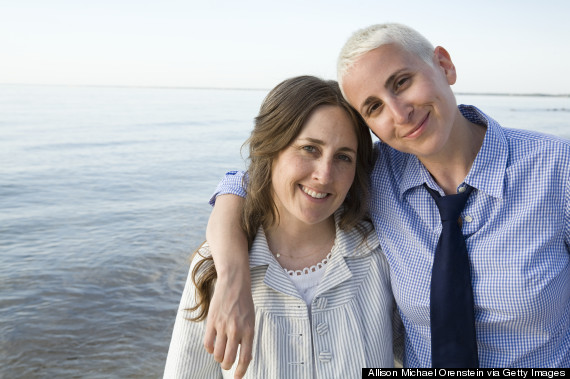
Our Living Well, On Location series explores cities and countries from around the world. How do other people pursue health and happiness? We're going coast to coast, country to country to find out.
The most recent ranking of health by state revealed Hawaii as the big winner. Other top performers? Minnesota (no surprise there) and three of the six states that comprise New England: Massachusetts, New Hampshire and Vermont. New England's other states, Maine (#16), Rhode Island (#20) and Connecticut (#7) didn't do too shabbily either.
So what can the region teach the rest of the country about living well? Quite a bit, it turns out.
Child well-being is a priority

New Hampshire, Vermont and Massachusetts took the top three spots in a 2012 national survey of childhood health, happiness and well-being. That's thanks to great education and health resources that have New England's children reading at or above their grade levels and enrolled in health insurance plans at a rate of 98 percent. Teen pregnancy and childhood death rates declined during the three-year study period, and high school graduation rates and employment rates for adults with children in their care rose steadily.
Residents stay covered
New Englanders understand the importance of staying insured and that has managed to keep them healthier. It's no surprise that Massachusetts, the home state of the insurance exchange upon which Obamacare is modeled, has high compliance when it comes to being insured. But Vermont and Maine were also identified as states where residents were most likely to be insured. Research shows that those who have insurance are more likely to undertake preventive treatments and more likely to stick to prescription medication regimens.
The good news is that, by federal law, we will all be obligated to comply with this particular healthful cultural feature. And in so doing, we may improve our national health ranking.
New Englanders support equality

Before the repeal of DOMA and the federal recognition of same-sex marriage, New England was a center for marriage equality rights. Not only was Massachusetts the first state to recognize gay marriage in 2003, the region was full of firsts: Vermont was the first state to legalize same-sex marriage through the legislature rather than through a court decision. Maine, though last among its neighbors, was the first state to legalize same-sex marriage by popular vote. New England was also the first region to have legal same-sex marriage in each of its states after Rhode Island passed legislation in 2013.
Same-sex marriage promotes community health in many ways, most basically because marriage, itself, is healthful, boosting happiness and longevity. But here's an added benefit for everybody, whether straight, gay, married or single: Gay-friendly communities boost the mental health of everyone. In a nationwide study, researchers found that ocmmunities accepting of same-sex marriage and gay people had lower rates of suicide and depression among teens -- regardless of the teens' sexuality.
New Englanders take a stand against infectious disease
Children and teens from Connecticut, New Hampshire and Rhode Island are more likely to have been vaccinated against dangerous infectious diseases, according to the United Health Foundation report. By contributing to the "herd immunity" -- the number of people required to keep infectious disease from spreading in a community -- these children and teens are keeping preventable illnesses, like measles, hepatitis and pertussis where they belong: in history.
Their obesity rates are low
Obesity prevalence in the six New England states are lower than in any other region of the country at 21.6 percent of the population, but that hasn't kept major research institutions from addressing the obesity problem that does exist. In one instance, Harvard Pilgrim Health Care Foundation has led the charge with anti-obesity programs directed at addressing childhood obesity in Massachusetts, Maine and New Hampshire.
New England knows its sports

Between the Boston Red Sox, New England Patriots and Boston Bruins, the region has more than its share of award-winning sports teams. And that doesn't even factor in the famous UConn Huskies women's basketball team or the long-standing rivalry between Yale and Harvard's football teams. Sports fandom can improve one's health, thanks to its connection to social ties. As HuffPost Healthy Living's Sarah Klein explained:
Whether the team wins or loses doesn't matter so much, it's going through the collective experience with a team of like-minded folks that boosts self-esteem and lifts spirits, CNN reported. The more passionate a fan, the greater the impact of these social connections on their lives, according to the Atlantic.
They stress less
People in the Northeast reported the lowest average stress levels and were more likely than any other region to report feeling little or no stress, according to a 2010 national report on stress from the American Psychological Association. Although it's important to note that the survey measured a slightly larger region than just New England (and, given that the survey was based on self-reporting, it's hard to know how much of the answers can be attributed to the New England's famous stoicism).
Education is No. 1

Five of the top 20 universities and 10 of the top 25 liberal arts colleges in America are dotted throughout New England, according to the 2014 U.S. News and World Report ranking. But you don't have to take their word for it: Each of these six states is full of world-class educational institutions and five of the 10 best prep schools also reside in Massachusetts, New Hampshire and neighbors.
And that has a real benefit to the public health: A good education is linked to a host of positive health outcomes, such as living longer, getting regularly screened for disease and exhibiting better health behaviors like healthy eating, regular exercise and refraining from smoking, reports the Robert Wood Johnson Foundation. Educated people also have healthier children, making school an investment in the health of future generations.
